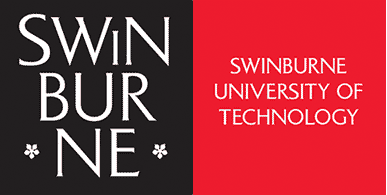
More than 10,000 participants have registered for a new, free online six-week course beginning in April, which has been designed by Swinburne University to provide practical help to families with a child on the autism spectrum.
Autism spectrum disorder is a lifelong condition affecting about 1 per cent of children who typically have preoccupations, aversions, obsessions and difficulties with social interaction. But, despite the disorder's frequency and the challenges it poses to parents, carers and teachers, much online information is about diagnosis and emotional support rather than practical help.
Now, a team at Swinburne University has stepped in to move away from "the theory of autism" to provide a free, practical online six-week course designed to give parents and carers strategies to help their child - and the family.
Lecturer in education Emma Donaldson, one of the course's designers, said it was clear "the autism community is in dire need of practical advice and support".
Swinburne's MOOC will be launched April 2 – World Autism Awareness Day – with an orientation week that will cover netiquette, e-safety, ethics and online navigation before the full six-week course begins April 13.
"The autism MOOC takes a very practical approach to autism…through the lens of inclusivity, fostering understanding and equipping participants with the skills and knowledge to solve practical issues in (their) lives...," Ms Donaldson said.
She said many carers were knowledgeable about the theories and research associated with autism but lacked practical advice and support. "Our overarching aim is to equip participants with the skills to improve the lives of individuals with autism and their families."
Offering the course online will add flexibility and improve the reach of the course. "The MOOC is designed for participants to choose their own pathway and curate their content depending on their area of interest. [It] will require approximately two hours per week...there are no set times as it is a worldwide MOOC and we aim to accommodate for all time zones," Ms Donaldson said.
A weekly topic will be set and participants will be expected to engage in the content via videos and podcasts, by assessing given scenarios and sharing their own stories and experiences. Ms Donaldson said the program's creators hoped this approach would foster a sense of connectedness and community amongst participants.
"Our hope is that we are able to build a community of support from this MOOC and that there will be more iterations of the course. In six weeks we can only scratch the surface but if successful we hope to build on its successes," she said.
So far, she said, feedback on the course design has been positive and early enrolments had exceeded expectations. Wyndham Vale mother of two Eileen Harding is looking forward to the course and to working collaboratively with others. Her six year old son, Blake, is on the autism spectrum, classified as mild high functioning.
Ms Harding hopes toget a better understanding of how to help her son with day-to-day activities and life in general. "I'm also interested in how others deal with meltdowns and getting younger children to eat more foods. As Blake has sensory issues with food, it's very hard to get him to try new foods," she said.
Although focusing on general coping mechanisms, the coordinators hope that during the scenarios and discussions, participants will look deeper into other topics relevant to their situation, such as communication or special interests. "The course will cover a range of topics across the spectrum, lifespan and gender," Ms Donaldson said.
Ms Harding says the course will fit well with the wider online support community.
"[Amaze] has amazing information on their website on how to understand and relate to autism... I have found there are also heaps of online support groups for parents and families, especially on Facebook which is great at 2am after a really bad day or night of meltdowns and you just want to vent," she said.
Fiona Sharkie, CEO of the peak body for autism spectrum disorders in Victoria, Amaze, is supportive of the new program.
"Anything that is going to make the world of autism better understood by the broader community is a great idea," she said.